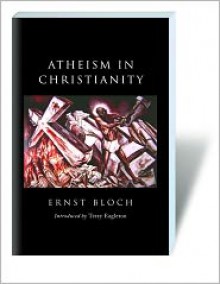
A Canticle for Leibowitz is Walter M. Miller, Jr.'s only novel. He was an Air Force engineer who was involved in the WWII bombing of an Italian monastery. Later, he converted to Catholicism, wrote this book, and eventually committed suicide.
Given the context of Miller's life, it's difficult to believe he could have written any other story. Canticle is a millennium-spanning, quietly epic novel that addresses mankind's constant cycle of self-destruction, barbarism, renaissance, and more self-destruction. It takes place in a Catholic monastery in what was once Utah, several centuries after the world was demolished by nuclear war. There, the monks worship one Saint Leibowitz, a somewhat mythical figure from "the time of the Flame Deluge" who attempted to salvage humanity's collected knowledge during the postwar book-burning backlash. The novel is divided into three sections separated by centuries and so different from each other that they're almost separate books in their own right.
The first, "Fiat Homo", takes place in the dark age that still exists several centuries after the war; the continent is populated with warring nomad tribes and feudal city-states, and the monks busy themselves copying and preserving their library for future generations, firmly believing that someday mankind will once again desire and benefit from the old knowledge.
In "Fiat Lux", that belief comes to fruition; the world is abuzz with a new renaissance of culture and science. A prominent scholar visits the abbey and is astonished at the wealth of scientific knowledge housed there. But outside the monastery, a war is waged between burgeoning empires, with the church caught in the middle.
Finally, in "Fiat Voluntas Tua", mankind has reached technological maturity, once again able to create rockets, robots, and nuclear bombs (the book was written in 1959, and these three artifacts seem to be the hallmarks of The Future in spec-fic of that era). America is once again an empire; so is Asia, and miscommunication and overreaction between the two don't bode well for the future of humanity.
Overall, the book is meditative, dark, and epic, but also at times very funny. There are major themes of faith vs. politics (and similarly, church vs. state), humanity's persistent short-sightedness, and the meaning of suffering. In these elements, the story is saturated with Miller's Catholic viewpoint. But there are also some very bleak, unCatholic threads to the story. Essentially, it's about a group of monks who work for a millennium to salvage, restore, protect, and share the collected knowledge of mankind, only to have the world use that knowledge to yet again destroy itself. The monastery itself acts as Eden's tree of knowledge. Not to mention the irony of this particular group of monks worshipping a Jewish man who likely converted only because he saw the monastery's potential as a bastion of learning in the midst of a world bent on ignorance.
This book isn't for everyone; it's slow-moving, somewhat dated, heavily religious, and contains a great deal of untranslated Latin. But it is deservedly one of the classics of Cold War-era apocalyptic fiction: dark, pessimistic, thought-provoking, and sadly believable.
February 3, 2008

 Log in with Facebook
Log in with Facebook 







